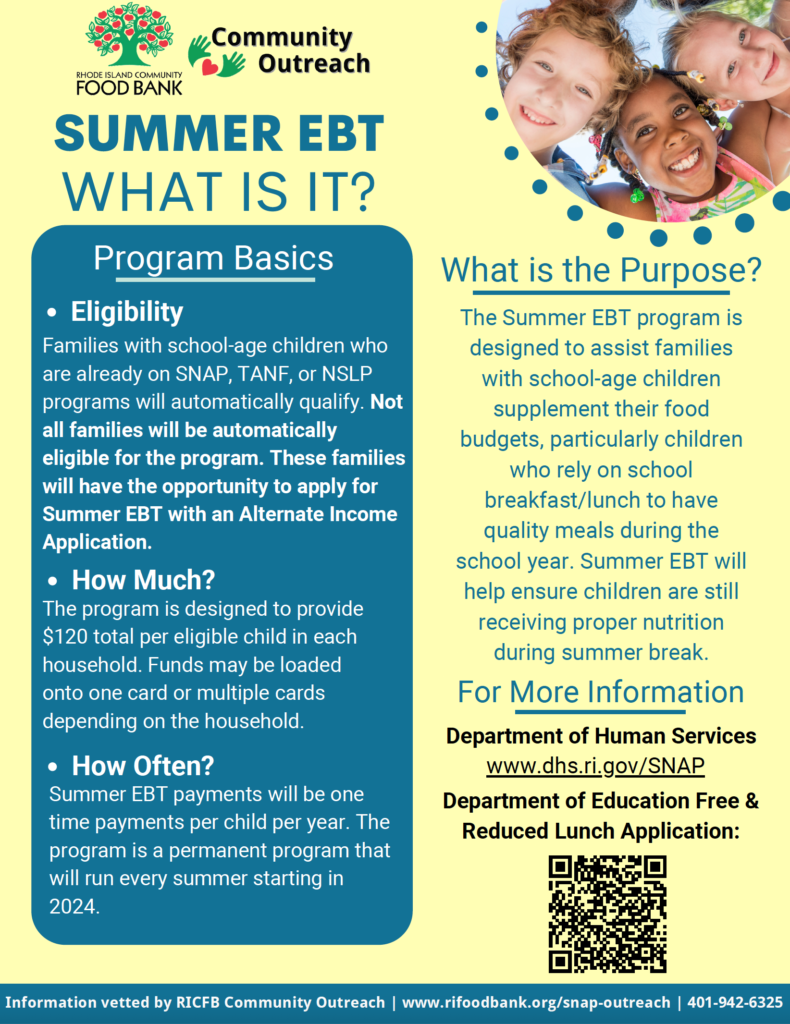As schools wrap up each summer, millions of children across the nation lose access to daily school meals they rely on during the academic year. In an effort to address food insecurity year-round, Rhode Island joins 34 states in the new nationwide Summer EBT program.
Starting this summer, about 66,000 children across the state are eligible to receive the Summer EBT benefit (also known as the SUN Bucks program). Children who are already enrolled in SNAP, TANF, or NSLP programs will automatically qualify for the new summer initiative, according to the Food Research & Action Center (FRAC). Families can also apply for Summer EBT with an Alternate Income Application.
Each eligible child will receive a monthly $40 payment on an Electronic Benefits Transfer (EBT) card—a sum of $120 for the entire summer—that is used to purchase groceries. In total, about $7.9 million in federally funded benefits will be distributed to families across the state.
However, Rhode Island cannot implement the Summer EBT program until the state submits a request seeking waiver approval to the USDA Food and Nutrition Service. More information on the timing of benefits and how residents can apply will be available soon at www.dhs.ri.gov/
Across the state, ethnic and racial disparities persist when it comes to economic security. Rhode Island children living in poverty are disproportionately Hispanic, Native American, and Black, according to recent data presented in the RI Kids Count 2024 Factbook. Struggling families are forced to make difficult decisions, and for many, purchasing high-quality foods may not be the top priority.
According to data included in the RI Life Index, in a 2023 survey, about 38% of Rhode Island households with children reported not being able to meet their basic food needs.
Nearly one in three Rhode Island households could not afford adequate food in 2023, according to the RI Kids Count 2024 Factbook. The report states that the Rhode Island Community Food Bank network served about 17,700 more people each month in 2023 compared to the previous year.
“Hunger and lack of regular access to sufficient food are linked to serious physical, psychological, emotional, and academic problems in children and can interfere with their growth and development,” states the RI Kids Count 2024 Factbook.
The existing Summer Food Service Program provides about 300,000 meals each summer to children living in communities of need. However, these meals are only offered through participating community organizations, which may be a barrier for families living in rural areas or with limited transportation access.
“…summer meals reach only a fraction of the children who rely on free and reduced-price school meals during the school year,” according to a FRAC fact sheet. “Summer EBT, which offers benefits to families to purchase food at retail locations, bridges that gap. Summer meals combined with Summer EBT is an effective recipe to meet children’s nutritional needs during the summer.”

